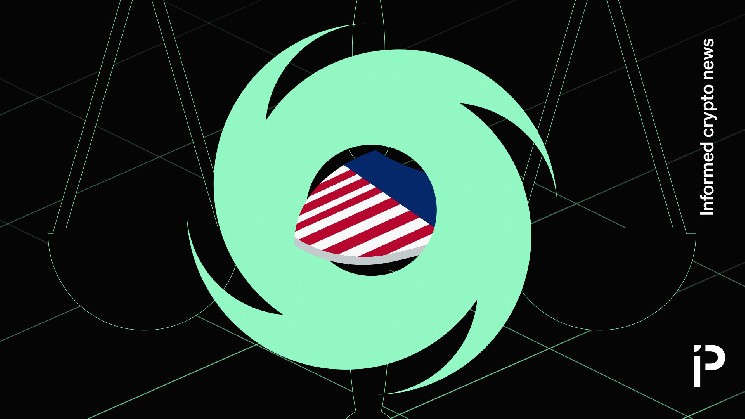Treasury cited only three examples of illicit Tornado Cash use, says judge

During oral arguments this week related to an appeal of the US Treasury’s designation of Tornado Cash as a sanctioned entity, a US circuit judge revealed an embarrassing detail.
On Tuesday, in a live proceeding of the appeal of that designation, Van Loon et al. v. U.S. Department of the Treasury et al., Judge Kurt Engelhardt asked lawyers why the US Treasury was only able to cite three examples of illicit use out of the millions of Tornado Cash transactions.
As reported by Law360, these three examples are not just small in the context of Tornado Cash’s enormous volume. Worse, these three justifications for the US Treasury’s designation of Tornado Cash might be even more embarrassing for another reason: A separate, pre-existing sanction might have prevented them.
All three transactions involved North Korea laundering financial assets in violation of pre-existing US Treasury sanctions. Indeed, North Korea has been a sanctioned entity since 2006 — formally, a Specially Designated National — prior to the addition of Tornado Cash to that sanctions list in August 2022.
Therefore, Judge Engelhardt specifically asked why North Korea’s pre-existing sanctions were insufficient for the legal purpose of preventing the illicit use Tornado Cash, especially if the US Treasury was only able to cite three examples involving North Korea.
To be clear, an entity that fails to prevent sanctions violations might itself become sanctioned. For example, the US Treasury might sanction a bank that attracts Iranian or Venezuelan money launderers, even though Iran and Venezuela are already sanctioned.
However, at least one judge in the three-judge panel for the Fifth Circuit is questioning whether a separate sanction was needed for Tornado Cash.
Read more: Coin Center loses Tornado Cash lawsuit, intends to appeal
The case is ongoing.
Entirely separate from this appeal, the US government is criminally prosecuting the co-founders of Tornado Cash Roman Semenov and Roman Storm. According to an indictment, they conspired to launder money, operate an unlicensed money-transmitting business, and transact with sanctioned entities.
Storm is fighting the charges while Semenov remains at large.




 Bitcoin
Bitcoin  Ethereum
Ethereum  Tether
Tether  USDC
USDC  Dogecoin
Dogecoin  Cardano
Cardano  TRON
TRON  Chainlink
Chainlink  Bitcoin Cash
Bitcoin Cash  LEO Token
LEO Token  Litecoin
Litecoin  Dai
Dai  Monero
Monero  Ethereum Classic
Ethereum Classic  Stellar
Stellar  Stacks
Stacks  Cronos
Cronos  OKB
OKB  Hedera
Hedera  Cosmos Hub
Cosmos Hub  Maker
Maker  Theta Network
Theta Network  KuCoin
KuCoin  Gate
Gate  Algorand
Algorand  Polygon
Polygon  NEO
NEO  EOS
EOS  Zcash
Zcash  Tether Gold
Tether Gold  Tezos
Tezos  Synthetix Network
Synthetix Network  TrueUSD
TrueUSD  IOTA
IOTA  Bitcoin Gold
Bitcoin Gold  Holo
Holo  Dash
Dash  Zilliqa
Zilliqa  0x Protocol
0x Protocol  Siacoin
Siacoin  Enjin Coin
Enjin Coin  Ravencoin
Ravencoin  Basic Attention
Basic Attention  Qtum
Qtum  Decred
Decred  Ontology
Ontology  NEM
NEM  Lisk
Lisk  Nano
Nano  Numeraire
Numeraire  Pax Dollar
Pax Dollar  DigiByte
DigiByte  Waves
Waves  Status
Status  Hive
Hive  Huobi
Huobi  Steem
Steem  BUSD
BUSD  Ren
Ren  OMG Network
OMG Network  Bitcoin Diamond
Bitcoin Diamond  Bytom
Bytom  Kyber Network Crystal Legacy
Kyber Network Crystal Legacy  HUSD
HUSD